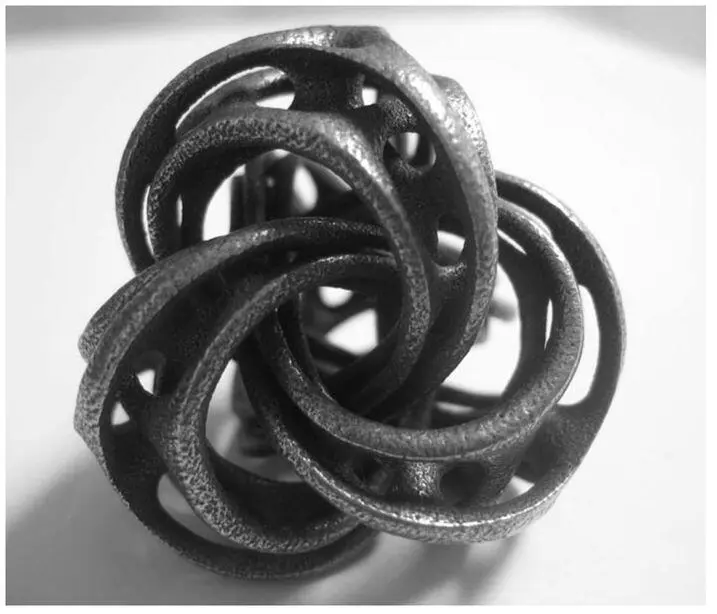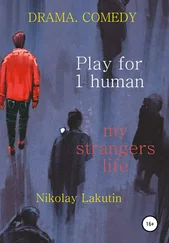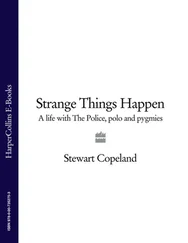Douglas Hofstadter - I Am a Strange Loop
Здесь есть возможность читать онлайн «Douglas Hofstadter - I Am a Strange Loop» весь текст электронной книги совершенно бесплатно (целиком полную версию без сокращений). В некоторых случаях можно слушать аудио, скачать через торрент в формате fb2 и присутствует краткое содержание. Жанр: Прочая документальная литература, на английском языке. Описание произведения, (предисловие) а так же отзывы посетителей доступны на портале библиотеки ЛибКат.
- Название:I Am a Strange Loop
- Автор:
- Жанр:
- Год:неизвестен
- ISBN:нет данных
- Рейтинг книги:4 / 5. Голосов: 1
-
Избранное:Добавить в избранное
- Отзывы:
-
Ваша оценка:
- 80
- 1
- 2
- 3
- 4
- 5
I Am a Strange Loop: краткое содержание, описание и аннотация
Предлагаем к чтению аннотацию, описание, краткое содержание или предисловие (зависит от того, что написал сам автор книги «I Am a Strange Loop»). Если вы не нашли необходимую информацию о книге — напишите в комментариях, мы постараемся отыскать её.
I Am a Strange Loop — читать онлайн бесплатно полную книгу (весь текст) целиком
Ниже представлен текст книги, разбитый по страницам. Система сохранения места последней прочитанной страницы, позволяет с удобством читать онлайн бесплатно книгу «I Am a Strange Loop», без необходимости каждый раз заново искать на чём Вы остановились. Поставьте закладку, и сможете в любой момент перейти на страницу, на которой закончили чтение.
Интервал:
Закладка:
Perhaps to break this spell, or perhaps to underline my own personal dividing line, I then saw another little black dot moving in a certain familiar zigzaggy fashion in the air near a lamp, and I went to investigate. The small black dot landed on the table below the lamp, and there was no question what it was: a mosquito, un moustique, una zanzara, eine Mücke. One moment later, that Mücke was history (I’ll spare you the details). By this point, I suspect, my views on the expendability of mosquitoes have probably become an annoyingly familiar refrain to readers of this book, but I have to say that I felt not the tiniest twinge of regret at the late bloodseeking missile’s demise.
A little before midnight, I interrupted my music-listening session to call my aging and ailing mother out in California, since I have a routine of phoning her every evening to give her a bit of family news and a bit of cheer. After our brief chat, I returned to my music, and when the Dorian toccata and fugue came on, I found my thoughts turning to a close friend who deeply loves that piece, and to his son, who had just been diagnosed with a worrisome illness. The music went on, and all these thoughts about beloved people and the precious, frightening fragility of human life somehow blended naturally with it.
To cap it all off, at some point after midnight, I heard a knock at the back door (not a standard event at our house, I assure you!), and I went to see who it was. It turned out to be a teen-ager whom I had met once or twice, who had been kicked out of his home a month earlier by his parents and who was sleeping in parks. He said it was a bit nippy that night and asked me if he could sleep in our playroom. I thought about it for a moment and since I knew my daughter trusted him, I said yes.
All at once it seemed an extremely strange coincidence that all of these intensely human things, these events dependent on my mirroring of other beings’ interiorities, were taking place right while I was so focused on the concepts of compassion and magnanimity.
Friends
Compassion, magnanimity, reverence for life — all these are qualities epitomized by Albert Schweitzer, who in addition had the remarkable quality of being a reverential Bach organist — but to my mind, this is no accident. Some might say that Schweitzer and people of his rare caliber are selfless. I understand this idea and I think there’s some truth to it, but on the other hand, oddly enough, I have been arguing, as does etymology, that the more magnanimous one is, the greater one’s self or soul is, not the smaller! So I would say that those who strike us as self-less are in fact very soul-full — that is, they house many other souls inside their own skulls/brains/minds/souls — and I don’t think this sharing of mind-space diminishes their central core but enlarges and enriches it. As Walt Whitman put it in his poem “Song of Myself ”, “I am large, I contain multitudes.” All this richness is a consequence of the fact that at some point in the dim past, the generic human brain surpassed a critical threshold of flexibility and became quasi-universal, able to internalize the abstract essences of other human brains. It is something to marvel at.
One day, as I was trying to figure out where I personally draw the line for applying the word “conscious” (even though of course there’s no sharp cutoff), it occurred to me that the most crucial factor was whether or not the entity in question could be said to have some notion, perhaps only very primitive, of “friend”, a friend being someone you care about and who cares about you. It seems clear that human babies acquire the rudiments of this notion pretty early on, and it also seems clear that some kinds of animals — mostly but not only mammals — have a pretty well-developed sense of the “friend” concept.
It’s clear that dogs feel that certain humans and dogs are their friends, and possibly also a few other animals. I won’t try to enumerate which types of animals seem capable of acquiring the “friend” notion because it’s blurry and because you can run down a mental list just as easily I can. But the more I think about this, the righter it feels to me. And so I find myself led to the unexpected conclusion that what seems to be the epitome of selfhood — a sense of “I” — is in reality brought into being if and only if along with that self there is a sense of other selves with whom one has bonds of affection. In short, only when generosity is born is an ego born.
How different this is from the view held by the majorityof philosophers of mind about the nature of consciousness! That view is that consciousness is the consequence of having so-called qualia, the supposedly primordial experiences (such as the retinal buzz made by the color purple, the sound of middle C, or the taste of Cabernet Sauvignon) out of which all “higher” experiences are built in bottom-up fashion. My view, in contrast, posits a high abstraction as the threshold at which consciousness starts to emerge from the gloom. Mosquitoes may “experience” the quale of the taste of blood, but they are unconscious of that quale, in just the way that toilets respond to but are totally unconscious of the various qualia of different water levels. Now if mosquitoes only had big enough brains to allow them to have friends, then they could be conscious of that great taste! Alas, the poor small-brained mosquitoes are constitutionally deprived of that chance.
But our glory as human beings is that, thanks to being beings with brains complicated enough to allow us to have friends and to feel love, we get the bonus of experiencing the vast world around us, which is to say, we get consciousness. Not a bad deal at all.


EPILOGUE
The Quandary

Not a Tall!
IN THE foregoing four-and-twenty chapters, I have given my best shot at saying what an “I” is, which means, perforce, that I have also done my best at saying what a self, a soul, an inner light, a first-person viewpoint, interiority, intentionality, and consciousness are. A tall order, to be sure, but I hope not a tall tale. To some readers, however, my story may still seem to be a tall — a terribly tall — a too-tall — tale. With such readers I sincerely sympathize, for I concede that there still are troubling issues.
The key problem is, it seems to me, that when we try to understand what we are, we humans are doomed, as spiritual creatures in a universe of mere stuff, to eternal puzzlement about our nature. I vividly remember how, as a teen-ager reading about brains, I was forced for the first time in my life to face up to the idea that a human brain, especially my own, must be a physical structure obeying physical law. Although it may seem strange to you, just as it does to me now, this realization threw me for a loop.
In a nutshell, our quandary is this. Either we believe that our consciousness is something other than an outcome of physical law, or we believe it is an outcome of physical law — but making either choice leads us to disturbing, perhaps even unacceptable, consequences. My purpose in these final pages is to face this dilemma head-on.
The Pull and Pitfalls of Dualism
In Chapter 22, I discussed dualism — the idea that over and above physical entities governed by physical law, there is a Capitalized Essence called “Consciousness”, which is an invisible, unmeasurable, undetectable aspect of the universe possessed by certain entities and not others. This notion, very close to the traditional western religious notion of “soul”, is appealing because it conforms with our everyday experience that the world is divided up into two kinds of things — animate and inanimate — and it also gives some kind of explanation for the fact that we experience our own interiority or inner light, something of which we are so intimately aware that to deny its existence would seem absurd if not impossible.
Читать дальшеИнтервал:
Закладка:
Похожие книги на «I Am a Strange Loop»
Представляем Вашему вниманию похожие книги на «I Am a Strange Loop» списком для выбора. Мы отобрали схожую по названию и смыслу литературу в надежде предоставить читателям больше вариантов отыскать новые, интересные, ещё непрочитанные произведения.
Обсуждение, отзывы о книге «I Am a Strange Loop» и просто собственные мнения читателей. Оставьте ваши комментарии, напишите, что Вы думаете о произведении, его смысле или главных героях. Укажите что конкретно понравилось, а что нет, и почему Вы так считаете.












